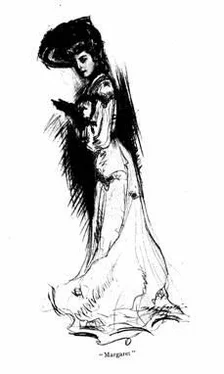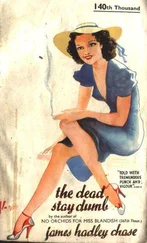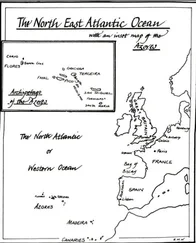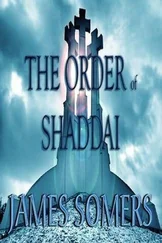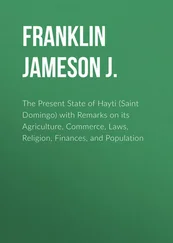James Cabell - The Eagle's Shadow
Здесь есть возможность читать онлайн «James Cabell - The Eagle's Shadow» весь текст электронной книги совершенно бесплатно (целиком полную версию без сокращений). В некоторых случаях можно слушать аудио, скачать через торрент в формате fb2 и присутствует краткое содержание. Жанр: Современная проза, на английском языке. Описание произведения, (предисловие) а так же отзывы посетителей доступны на портале библиотеки ЛибКат.
- Название:The Eagle's Shadow
- Автор:
- Жанр:
- Год:неизвестен
- ISBN:нет данных
- Рейтинг книги:4 / 5. Голосов: 1
-
Избранное:Добавить в избранное
- Отзывы:
-
Ваша оценка:
- 80
- 1
- 2
- 3
- 4
- 5
The Eagle's Shadow: краткое содержание, описание и аннотация
Предлагаем к чтению аннотацию, описание, краткое содержание или предисловие (зависит от того, что написал сам автор книги «The Eagle's Shadow»). Если вы не нашли необходимую информацию о книге — напишите в комментариях, мы постараемся отыскать её.
The Eagle's Shadow — читать онлайн бесплатно полную книгу (весь текст) целиком
Ниже представлен текст книги, разбитый по страницам. Система сохранения места последней прочитанной страницы, позволяет с удобством читать онлайн бесплатно книгу «The Eagle's Shadow», без необходимости каждый раз заново искать на чём Вы остановились. Поставьте закладку, и сможете в любой момент перейти на страницу, на которой закончили чтение.
Интервал:
Закладка:
But the thing is beyond me. I leave such considerations, then, to Célestine, and resolve for the future rigorously to eschew all such gauds. Meanwhile, if an untutored masculine description will content you—
Margaret, I have on reliable feminine authority, was one of the very few blondes whose complexions can carry off reds and yellows.
This particular gown—I remember it perfectly—was of a dim, dull yellow—flounciful (if I may coin a word), diaphanous, expansive. I have not the least notion what fabric composed it; but scattered about it, in unexpected places, were diamond-shaped red things that I am credibly informed are called medallions. The general effect of it may be briefly characterised as grateful to the eye and dangerous to the heart, and to a rational train of thought quite fatal.
For it was cut low in the neck; and Margaret's neck and shoulders would have drawn madrigals from a bench of bishops.
And in consequence, Billy Woods ate absolutely no dinner that evening.
IX
It was an hour or two later when the moon, drifting tardily up from the south, found Miss Hugonin and Mr. Kennaston chatting amicably together in the court at Selwoode. They were discussing the deplorable tendencies of the modern drama.
The court at Selwoode lies in the angle of the building, the ground plan of which is L-shaped. Its two outer sides are formed by covered cloisters leading to the palm-garden, and by moonlight—the night bland and sweet with the odour of growing things, vocal with plashing fountains, spangled with fire-flies that flicker indolently among a glimmering concourse of nymphs and fauns eternally postured in flight or in pursuit—by moonlight, I say, the court at Selwoode is perhaps as satisfactory a spot for a tête-à-tête as this transitory world affords.
Mr. Kennaston was in vein to-night; he scintillated; he was also a little nervous. This was probably owing to the fact that Margaret, leaning against the back of the stone bench on which they both sat, her chin propped by her hand, was gazing at him in that peculiar, intent fashion of hers which—as I think I have mentioned—caused you fatuously to believe she had forgotten there were any other trousered beings extant.
Mr. Kennaston, however, stuck to apt phrases and nice distinctions.
The moon found it edifying, but rather dull.
After a little Mr. Kennaston paused in his boyish, ebullient speech, and they sat in silence. The lisping of the fountains was very audible. In the heavens, the moon climbed a little further and registered a manifestly impossible hour on the sun-dial. It also brightened.
It was a companionable sort of a moon. It invited talk of a confidential nature.
"Bless my soul," it was signalling to any number of gentlemen at that moment, "there's only you and I and the girl here. Speak out, man! She'll have you now, if she ever will. You'll never have a chance like this again, I can tell you. Come, now, my dear boy, I'm shining full in your face, and you've no idea how becoming it is. I'm not like that garish, blundering sun, who doesn't know any better than to let her see how red and fidgetty you get when you're excited; I'm an old hand at such matters. I've presided over these little affairs since Babylon was a paltry village. I'll never tell. And—and if anything should happen, I'm always ready to go behind a cloud, you know. So, speak out!—speak out, man, if you've the heart of a mouse!"
Thus far the conscienceless spring moon.
Mr. Kennaston sighed. The moon took this as a promising sign and brightened over it perceptibly, and thereby afforded him an excellent gambit.
"Yes?" said Margaret. "What is it, beautiful?"
That, in privacy, was her fantastic name for him.
The poet laughed a little. "Beautiful child," said he—and that, under similar circumstances, was his perfectly reasonable name for her—"I have been discourteous. To be frank, I have been sulking as irrationally as a baby who clamours for the moon yonder."
"You aren't really anything but a baby, you know." Indeed, Margaret almost thought of him as such. He was so delightfully naïf.
He bent toward her. A faint tremor woke in his speech. "And so," said he, softly, "I cry for the moon—the unattainable, exquisite moon. It is very ridiculous, is it not?"
But he did not look at the moon. He looked toward Margaret—past Margaret, toward the gleaming windows of Selwoode, where the Eagle brooded:
"Oh, I really can't say," Margaret cried, in haste. "She was kind to Endymion, you know. We will hope for the best. I think we'd better go into the house now."
"You bid me hope?" said he.
"Beautiful, if you really want the moon, I don't see the least objection to your continuing to hope. They make so many little airships and things nowadays, you know, and you'll probably find it only green cheese, after all. What is green cheese, I wonder?—it sounds horribly indigestible and unattractive, doesn't it?" Miss Hugonin babbled, in a tumult of fear and disappointment. He was about to spoil their friendship now; men were so utterly inconsiderate. "I'm a little cold," said she, mendaciously, "I really must go in."
He detained her. "Surely," he breathed, "you must know what I have so long wanted to tell you—"
"I haven't the least idea," she protested, promptly. "You can tell me all about it in the morning. I have some accounts to cast up to-night. Besides, I'm not a good person to tell secrets to. You—you'd much better not tell me. Oh, really, Mr. Kennaston," she cried, earnestly, "you'd much better not tell me!"
"Ah, Margaret, Margaret," he pleaded, "I am not adamant. I am only a man, with a man's heart that hungers for you, cries for you, clamours for you day by day! I love you, beautiful child—love you with a poet's love that is alien to these sordid days, with a love that is half worship. I love you as Leander loved his Hero, as Pyramus loved Thisbe. Ah, child, child, how beautiful you are! You are fairest of created women, child—fair as those long-dead queens for whose smiles old cities burned and kingdoms were lightly lost. I am mad for love of you! Ah, have pity upon me, Margaret, for I love you very tenderly!"
He delivered these observations with appropriate fervour.
"Mr. Kennaston," said she, "I am sorry. We got along so nicely before, and I was so proud of your friendship. We've had such good times together, you and I, and I've liked your verses so, and I've liked you—Oh, please, please , let's keep on being just friends!" Margaret wailed, piteously.
"Friends!" he cried, and gave a bitter laugh. "I was never friends with you, Margaret. Why, even as I read my verses to you—those pallid, ineffectual verses that praised you timorously under varied names—even then there pulsed in my veins the riotous pæan of love, the great mad song of love that shamed my paltry rhymes. I cannot be friends with you, child! I must have all or nothing. Bid me hope or go!"
Miss Hugonin meditated for a moment and did neither.
"Beautiful," she presently queried, "would you be very, very much shocked if I descended to slang?"
"I think," said he, with an uncertain smile, "that I could endure it."
"Why, then—cut it out, beautiful! Cut it out! I don't believe a word you've said, in the first place; and, anyhow, it annoys me to have you talk to me like that. I don't like it, and it simply makes me awfully, awfully tired."
With which characteristic speech, Miss Hugonin leaned back and sat up very rigidly and smiled at him like a cherub.
Kennaston groaned.
"It shall be as you will," he assured her, with a little quaver in his speech that was decidedly effective. "And in any event, I am not sorry that I have loved you, beautiful child. You have always been a power for good in my life. You have gladdened me with the vision of a beauty that is more than human, you have heartened me for this petty business of living, you have praised my verses, you have even accorded me certain pecuniary assistance as to their publication—though I must admit that to accept it of you was very distasteful to me. Ah!" Felix Kennaston cried, with a quick lift of speech, "impractical child that I am, I had not thought of that! My love had caused me to forget the great barrier that stands between us."
Читать дальшеИнтервал:
Закладка:
Похожие книги на «The Eagle's Shadow»
Представляем Вашему вниманию похожие книги на «The Eagle's Shadow» списком для выбора. Мы отобрали схожую по названию и смыслу литературу в надежде предоставить читателям больше вариантов отыскать новые, интересные, ещё непрочитанные произведения.
Обсуждение, отзывы о книге «The Eagle's Shadow» и просто собственные мнения читателей. Оставьте ваши комментарии, напишите, что Вы думаете о произведении, его смысле или главных героях. Укажите что конкретно понравилось, а что нет, и почему Вы так считаете.
